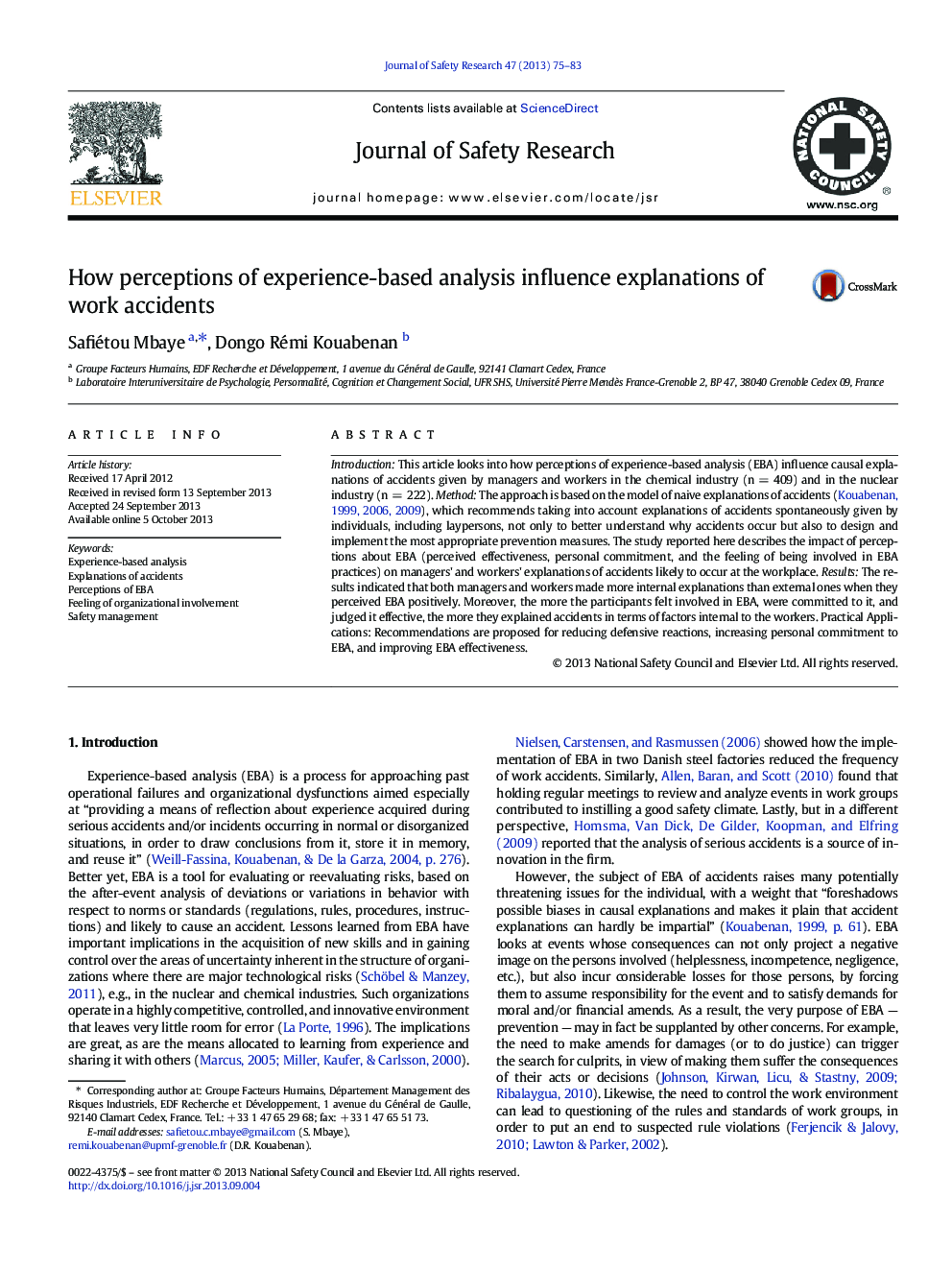| Article ID | Journal | Published Year | Pages | File Type |
|---|---|---|---|---|
| 587443 | Journal of Safety Research | 2013 | 9 Pages |
•The study was conducted in two chemical factories and one nuclear power plant.•The link between EBA perception and spontaneous accidents explanation is examined.•Workers and managers tend to ascribe accidents to factors external to themselves.•Workers attribute accidents to themselves when they feel involved in EBA practices.•Managers ascribe accidents to organizational factors when they don't feel involved in EBA.
IntroductionThis article looks into how perceptions of experience-based analysis (EBA) influence causal explanations of accidents given by managers and workers in the chemical industry (n = 409) and in the nuclear industry (n = 222).MethodThe approach is based on the model of naive explanations of accidents (Kouabenan, 1999, 2006, 2009), which recommends taking into account explanations of accidents spontaneously given by individuals, including laypersons, not only to better understand why accidents occur but also to design and implement the most appropriate prevention measures. The study reported here describes the impact of perceptions about EBA (perceived effectiveness, personal commitment, and the feeling of being involved in EBA practices) on managers' and workers' explanations of accidents likely to occur at the workplace.ResultsThe results indicated that both managers and workers made more internal explanations than external ones when they perceived EBA positively. Moreover, the more the participants felt involved in EBA, were committed to it, and judged it effective, the more they explained accidents in terms of factors internal to the workers. Practical Applications: Recommendations are proposed for reducing defensive reactions, increasing personal commitment to EBA, and improving EBA effectiveness.
